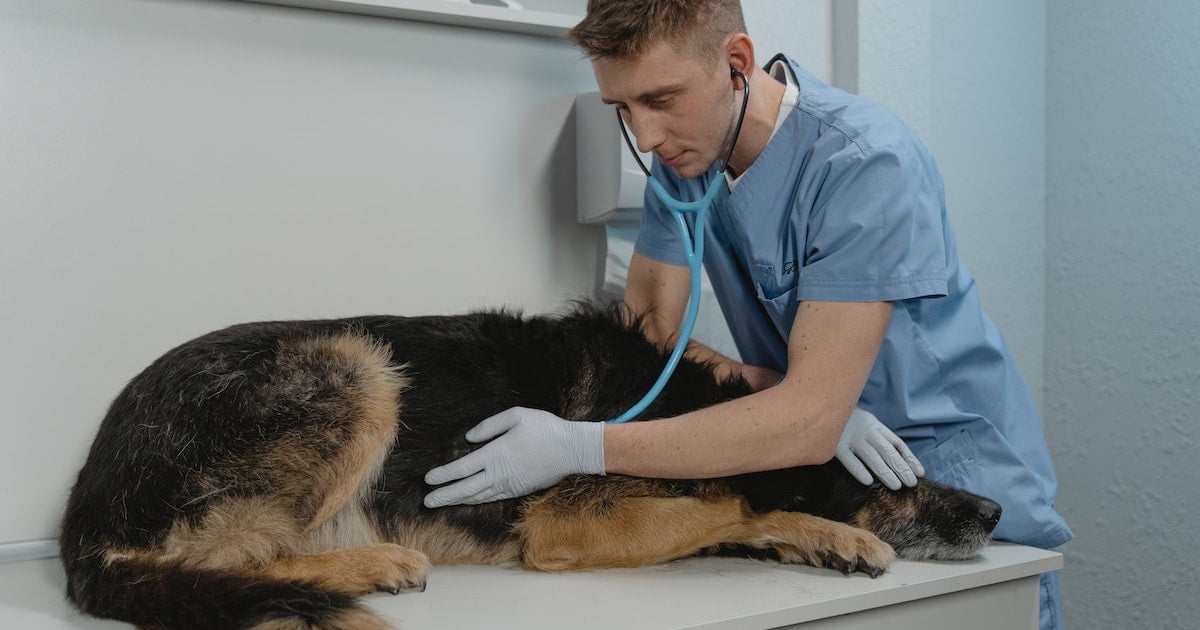Pet exams are as important as our annual check-ups, and anyone who expects them to have some kind of symptom to perform them is wrong.
In fact, the more we monitor, the greater the chances that we will discover possible anomalies as early as possible and thus the treatment will be more effective.
In addition, you can also see signs that something is not right and even prevent it from actually becoming a disease, infection, etc.
And for the most sensitive and concerned tutors, don’t worry! The most important exams are not invasive, and the pet feels at most a little prick or you will collect his pee, for example.
The hard thing is to see them sick, isn’t it? So let’s prevent!
5 Super important pet exams in their routine
- Complete blood count
This is certainly the most well-known and fundamental check-up exam, both for humans and for our 4-legged friends.
That’s because blood gives us a general parameter of how fundamental aspects of our health are. Luckily, this exam is quick, easy and very affordable.
From this pet exam , the veterinarian verifies:
- whether or not there is any abnormality in the body;
- if you are able to perform specific surgeries, procedures and treatments;
- the clinical picture after trauma, injury and other situations;
- how is the transport of oxygen to the blood;
- the defense of the organism;
- existence of diseases, inflammations, viruses, infections, etc.
When to do?
Annually, from 1 year.
- Electrocardiogram
There are two points about health and heart disease: they are usually silent, and if not treated correctly, they lead to death. Unfortunately, the tendency is to recognize them only at an advanced stage.
Therefore, performing tests such as the electrocardiogram is indispensable! In this case, the exam will determine if there is any type of heart disease, in addition to the veterinarian, alert the tutor if the breed or age of the pet is predisposed to them.
At the consultation, he will indicate prevention and healthy habits for the pet’s little heart, which will give him much more quality of life!
When to do?
Annually, from 5 years.
- Urine analysis
Urine examination is also present in pet examinations. It is through it that it is possible to see if the kidneys are working properly, in addition to recognizing or ruling out infections, inflammations, some tumors, worms, etc.
In addition, it also checks the rate of nutrients, so we can know which ones are or are not in the right amount.
When to do?
Annually, from 1 year.
- veterinary ultrasound
More than offering a diagnosis, it is also important to know how the health of the organs is, even without any symptoms.
Especially because, like the heart, abdominal region, kidneys and other internal parts, diseases related to them are also generally silent.
So, an ultrasound allows the evaluation without subjecting the pet to any type of radiation or invasive examinations.
When to do?
Usually annually starting at age 5.
Why is it important to perform a checkup on pets?
Health is not only the most precious thing for us, but for them as well. In the case of pets, it is even more important to always check well-being issues in depth, because they cannot communicate verbally.
In many cases, not even physically, and that’s why there are many reports from dog and cat owners who claim that they didn’t show any signs that they were sick, but were very sick.
In these cases, relying on science, technology and especially qualified professionals is so important!
But, to take care of your best friend (or children, as we usually call them), you must have a veterinary clinic with adequate structure. After all, most illnesses cannot be seen with the naked eye, but require:
- laboratory tests;
- suitable apparatus and equipment;
- complete infrastructure, covering all needs and emergencies.
With all this, pet exams can be done to ensure his health, because:
- detect and diagnose any health alteration;
- thus, treatment begins in the early stages and is more effective;
- or else, when an anomaly is identified, it is treated so that it does not turn into a disease.
In any situation, prevention and early (rather than late) initiation of intervention can save lives!
More than pet exams, vet appointments should also become routine
In addition to pet exams , regular visits to the veterinarian also ensure the health and quality of life of pets.
For example, you buy the food that you consider to be the best and never run out. In addition, she bathes regularly with the most expensive products.
Surely, all this is synonymous with care and concern for his well-being, isn’t it? But there is a catch:
What if this food is not suitable for him? What if the shampoo is giving you an allergy, and even after taking several baths, you are forgetting to brush your teeth?
As much as we take great care of ourselves, consultations with the vet will help us with these details that make all the difference, especially when added to the pet exams.
